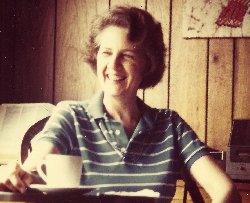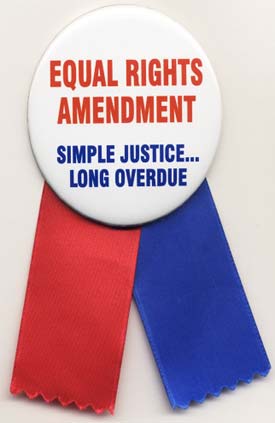| JENNIFER MACLEOD Psychologist, NOW activist, Author of "You Won't Do,” What High School Textbooks on Government Teach High School Girls, ERA activist  I was born Jennifer Ann Selfridge
November 1929 in London, England. My father was a business executive and son of the American founder and head of
Selfridges, a large department store in London. My mother, the daughter of a British attorney, was a secretary
and then a homemaker. My three brothers and I had dual American and British citizenship. I was born Jennifer Ann Selfridge
November 1929 in London, England. My father was a business executive and son of the American founder and head of
Selfridges, a large department store in London. My mother, the daughter of a British attorney, was a secretary
and then a homemaker. My three brothers and I had dual American and British citizenship. In 1940, when I was ten, we moved to the U.S, on the second to last passenger ship that crossed the Atlantic before none were permitted to brave the U-boat infested ocean, a month before the date Hitler had set to invade England. Following my father’s career demands, we moved frequently–from Darien, CT to Fair Haven, NJ, to Madison, WI, to Red Bank, NJ. As the girl of the family, little was expected of me other than "behaving myself" (which I did) and "doing well in school" (which I also did, skipping a couple of grades along the way). While my brothers were encouraged and tutored and sent to superb private schools, I went to local schools in England and then to public schools (good ones, fortunately) in the U.S.– a total of nine different schools before I started college. Though unspoken, it was amply clear that I was expected to be working in a job such as secretary (their initial aim was for me to go to secretarial school ), and as quickly as possible, to attract a “suitable” husband who would support me and our children. After my parents' deaths, I came to understand and forgive them for their treatment of me as the girl in the family. Following the mores of the time, they had done the best they knew how . It was up to ME to break out--which I did. I graduated from high school at the top of my class in Madison, WI, and my parents agreed that I could enter the University of Wisconsin a short bus drive from our house. I excelled academically for two years at Wisconsin U (my brothers had moved on to MIT) and persuaded my parents to let me transfer to Radcliffe College (for "girls") of Harvard University. Our class of 1949 was kept to no more than one-fifth the size of Harvard's, but competed head to head with Harvard students who were provided with much superior academic and living conditions. Encouraged by a brilliant young professor of psycholinguistics, Dr. George Miller, who sponsored my honors research project that resulted in an academic journal publication for which he gave me co-authorship, I graduated magna cum laude Phi Beta Kappa in (research) psychology at age 19. Now I needed to earn a living. Powerful academic, economic and career discrimination against women was everywhere. Jobs that would use my skills and education, and pay enough for me to live on (let alone have opportunities for advancement) were non-existent . I resented that enormously, but it was ubiquitous reality and it seemed women had no choice but to live with it. There appeared to be one other option. As was the case with many of my Radcliffe classmates, I did what was expected -- I fell in love with a Harvard classmate (John Macleod, a World War II Air Force veteran who later became an advertising executive). We went to France (on his GI bill) for a few idyllic months of study at two universities, and then moved to New York City, the best place for John to start his advertising career. I was determined to have a career (and we certainly needed the money), so I took the only job I could find—as a typist. But I kept looking, and somehow managed to get into the social research field, though at the lowest level (as a typist again). I worked my way up , always far more qualified, but paid little more than half what men received. Continuing to work toward a professional career, I sought and received a good fellowship that paid my tuition at Columbia University and enabled me to earn my PhD. in (research) psychology in 1958. By this time we had moved to Princeton, NJ.  There I joined Opinion Research Corporation as a project director (the first female member of their professional staff), and later was promoted to the research director category, - still paid far less than my male cohorts. In another step up, I was made the company’s chief psychologist, even as I shifted to a part-time schedule so as to raise my children, Pamela and Scott, born in 1960 and 1962. My children brought me and still bring me great joy, and have always supported me in my feminist convictions. They also gave me three delightful grandchildren, Catherine, Ian, and Jennifer. And then came Betty Friedan's extraordinary "Feminine Mystique,” published in 1963, which made me realize I WAS NOT ALONE! In February, 1966 I attended a NOW organizing meeting in Princeton, New Jersey and was elected its first president. The Princeton chapter became one of the most effective chapters outside a major city through the early 1970's. Highlights of that experience are in my bio in Feminist Who Changed America . One highlight I didn't mention was being interviewed by Hugh Downs on NBC's Today Show on Women's Equality Day, August 26,1971. That interview was live to an audience of millions. I ‘d no advance knowledge of the questions I’d be asked, but I amazed myself -- coming through with flying colors. As a result, henceforth I was completely unfazed , appearing on many radio and television shows, and speaking to audiences of any size, sometimes without notes. I ‘d left Opinion Research Corporation earlier in 1971, when I hit their glass ceiling ("We'd love to make you a vice president, but unfortunately our clients would never accept a female vice president"), but I was soon recruited to be the Director of the newly created Center for the American Woman and Politics at Rutgers University's Eagleton Institute of Politics. I was tremendously excited about my job, but left after only six months as a result of an irreconcilable policy disagreement: The research program I developed and proposed highlighted my recommendation to conduct a national survey of public attitudes toward women in politics, to serve as a starting benchmark. The head of the Eagleton Institute completely rejected that proposal and told me to develop a proposal to survey the wives of politicians. I almost burst into laughter, but he was dead serious--and adamant. I left soon after. (Years later the Center did become a very effective force in advancing women in politics.) John Macleod and I divorced amicably in early 1972– I gladly accepted child support but refused alimony. I was left with our house and custody of our children, but no job. However, the Eagleton Institute gave me a one-year $10,000 grant to conduct another one of the projects I had proposed: a content analysis of high school civics textbooks with regard to their treatment of women. I hired my young and talented feminist friend Sandra (Sandy) Silverman (now Sandy Silverman Souder) to assist with the content analysis part-time (for a very low hourly rate, all I could afford), so I had time to build a feminist consulting practice. The resulting book, “You Won't Do,” subtitled “What High School Textbooks on Government Teach High School Girls” was published in low-priced paperback in 1973 by *KNOW, Inc., the feminist publishing firm in Pittsburgh. (I named Sandy co-author because her contribution was so essential and so effective). It sold well at feminist events and conferences, and later for women's studies courses. I had begun earning income from corporations for my feminist consulting efforts and anti-sexism workshops, plus some well paid lectures, most of them about women in the workplace. (I was on roster of the * New Feminist Talent Associates.) Campaigning for feminists to be paid for their expertise instead of giving it away to corporations and educational institutions under pressure to reduce their sex discrimination practices, I co-founded the Association of Feminist Consultants and served as its first head. Sandy Silverman followed me in that position. By 1975 we had nearly 100 members, including some familiar feminists such as Karen DeCrow, Ronnie Eldridge, Muriel Fox, Gerald Gardner, Jo-Ann EvansGardner, Wilma Scott Heide and Ann Scott. From 1975 to 1977, I had a stint as VP for Human Resources for one of my consulting clients, the Fidelity Bank in Philadelphia, which was under a federal government consent decree requiring them to eliminate their long-standing discrimination against women in their staffing. I learned a lot those two years, but more important, I had the great fortune to meet (on the Princeton to Philadelphia commuter train), Robert (Bob) Marchisotto, the research pharmacologist who later became (and still is) my second husband. In 1977, I returned to my home-based consulting practice, Jennifer Macleod Associates, which became my full time--and very satisfying--career until I retired in 2000. Most of my clients were major corporations such as AT&T and Exxon, and the nature of my contracts with them varied greatly--but always reflected my feminist convictions. In the 1980's, with my children grown and Jennifer Macleod Associates thriving, I volunteered with Beyond War, an organization working to reduce the worldwide danger of nuclear war. I had other rewarding interests and hobbies -- including art, architecture and design, traveling around in the US and abroad, and family genealogy. In the 1990's, after being blown away by Riane Eisler's remarkable "The Chalice and the Blade," I focused my efforts on her Partnership Movement and Center for Partnership Studies, working closely with her, writing a section in her second book, participating in conferences (including a world-wide conference in Crete in 1992), running workshops, and editing their newsletter.  I closed Jennifer Macleod Associates in 2000 and returned to unpaid feminist activism, focusing my efforts on the continuing disgrace of our U.S. Constitution that still denies women of America the constitutionally-guaranteed equal rights that should have been our birthright long ago. I co-founded the still active ERA Campaign Network, and was its national coordinator, designer and newsletter editor, The ERA Campaigner, and ran its website (www.ERACampaign.net) until 2010 when I and my husband, who was sadly ailing, moved to Meadow Lakes, a continuing-care retirement community in East Windsor, NJ. The fight for the ERA–or for some other way to obtain fully and permanently constitutionally guaranteed equal rights for the women of America--continues. It has been an extraordinarily difficult slog, but what feminist goal was ever easy to achieve in women's continuing struggle to fully emerge from tens of thousands of years of almost universal complete domination by the male half of the earth's human population? As I age, the extraordinary ongoing revolution for the women of America–and the world--stays very much alive for me, as it does for all of us and for our struggling sisters all over the world. * KNOW, INC was founded and run by Pittsburgh NOW activists, Jo-Ann and Gerald EvansGardner. * New Feminist Talent was founded by Jacqui Ceballos, Jane Field and Dell Williams in 1972. Jennifer S. Macleod, Ph.D. CONTACT JENNIFER: Jsmacleod@aol.com COMMENTS JACQUI CEBALLOS jcvfa@aol.com Back to VFA Feminist CloseUp Table of Contents |